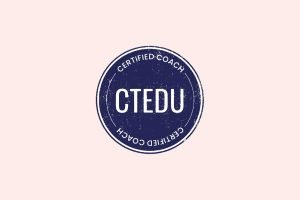Life coach organizations or associations are professional institutions that promote and maintain the standards of life coaching.
They offer various services, including certification, continuous education, network and community, and more.
To discover the top reputable life coaching organizations, be sure to keep reading!
Looking for the best certification programs? Check out this article.
Table of Contents
How Do Life Coach Associations Work Exactly?
When joining a life coaching organization, you usually pay a membership fee that gives you access to various resources (certifications, training materials, workshops, etc.) that will help you grow as a coach.
Being part of these groups also means joining a community. You can attend events and meet others, which helps you learn from other people and boost your practice through networking.
In addition, some organizations provide directories where clients can find and hire accredited coaches. This increases your visibility and can help you pull in more clients.
Best Professional Coaching Organizations
Selecting the right life coach associations can greatly impact your career and personal development.
The top organizations listed here have been chosen based on their reputation, certification standards, continuous education offerings, and the professional support they provide to their members.
1. International Coach Federation (ICF)
ICF is a globally-recognized organization with over 50,000 members worldwide. Often referred to as the “gold standard” in coaching, the ICF offers a wealth of resources, training, and a global network for coaches.

ICF offers three primary credentials:
- Associate Certified Coach (ACC)
- Professional Certified Coach (PCC)
- Master Certified Coach (MCC)
Each level requires specific coaching experience, training hours, and skill demonstration through recorded coaching sessions. Learn more about ACC, PCC, and MCC in this article.
ICF credentials are recognized in all niches, and they accredit programs from various coaching fields.
2. European Mentoring and Coaching Council (EMCC)
EMCC is another global organization dedicated to promoting best practices, ethical standards, and professional development in mentoring and coaching.
Established in 2002, the EMCC has grown significantly and now operates in 140+ countries with over 10,000 members worldwide.
They provide various levels of accreditation for individuals and groups, including the EMCC Global Quality Award (EQA) and the Individual Accreditation (EIA).
Although ICF has a broader global presence and influence, EMCC has a stronger foothold in Europe, making it an exceptional choice for coaches in Europe who want international credentials.
3. International Association of Coaching (IAC)
Unlike many other coaching organizations, the IAC does not require a set number of training hours or specific program attendance.
Instead, they evaluate coaching mastery through a thorough assessment of skills and demonstration of The Coaching Masteries.
The Coaching Masteries are a set of foundational skills created through an international collaboration, designed to be applicable in various coaching situations. They focus on building trust, listening deeply, and facilitating client growth and transformation.
4. Association for Coaching (AC)
AC is a leading independent, nonprofit professional body established in 2002. They offer various accreditations, including Coach Accreditation, Coaching Supervision Accreditation, and Team Coach Accreditation.
Unlike the International Coach Federation (ICF), which requires specific training hours and mentorship, AC emphasizes practical coaching skills and ethical standards without rigid training requirements.
5. The International Authority for Professional Coaching and Mentoring (IAPC&M)
Established in 1998 and officially registered in 2003, the IAPC&M focuses on providing independent, third-party accreditation to coaches, mentors, and training providers.
Third-party accreditation meaning IAPC&M does not run its own training programs. Instead, coaches and mentors are assessed by an external body, ensuring an unbiased evaluation.
Accreditations include Accredited Practitioner Coach (APC), Accredited Senior Coach (ASC), Accredited Master Coach (AMC), and Accredited Fellow Coach (AFC).
6. Center for Credentialing & Education (CCE)
CCE is a nonprofit organization established in 1995 as an affiliate of the NBCC (National Board for Certified Counselors).
Unlike other coaching organizations that might focus exclusively on coaching, CCE’s credentials span multiple disciplines, including:
- Global Career Development Facilitator (GCDF),
- Human Services-Board Certified Practitioner (HS-BCP),
- Board Certified-TeleMental Health (BC-TMH), and most important of all,
- the Board Certified Coach (BCC).
To qualify for the BCC credential, one requirement is that you must have a bachelor’s degree in any field from an accredited institution.
7. The American Association of Professional Coaches (AAPC)
Founded in 1994, AAPC has a rich history of accrediting training programs and delivering certifications. They certify coaches who completed approved training programs (you can check them out on their website).
If you’re a certified member, a fantastic perk is getting listed in a Coach Referral Service, which connects you with people searching for a coach.
Similar to the bodies already mentioned, AAPC offers a range of resources, including webinars, coaching workshops, and networking opportunities to support ongoing professional development
8. National Board for Health & Wellness Coaching (NBHWC)
The NBHWC is a leading organization in the health and wellness coaching field. They offer the National Board Certified Health & Wellness Coach (NBC-HWC) credential, which is highly-regarded for its rigorous standards.
Over 9,000 coaches hold the reputable NBC-HWC credential, and the organization has approved over 120 training programs (some of which you can find in our list of top health coaching certifications).
NBC-HWC-certified coaches are trained in behavior change theories, motivational strategies, and health education, allowing them to support clients in achieving sustainable health and wellness goals.
They also get access to a national directory and an exclusive job board, which can help them with exposure and employment opportunities.
9. The Professional Association for ADHD Coaches (PAAC)
Organizations like PAAC focus on providing resources, training, and support for coaches whose specialty is ADHD coaching.
As an organization of ADHD coaches, its efforts are directed toward developing best practices in this field of coaching and offering a community where ADHD coaches can network and share insights.
They also have their own ADHD coach registry, which can help you find your first clients.
10. Worldwide Association of Business Coaches (WABC)
WABC is a leading organization for business, career, and leadership coaching. Established in 1997, WABC has been a prominent authority in these fields, offering accreditation, resources, and a strong community for business coaches.
Levels of certification include:
- Registered Corporate Coach (RCC)
- Certified Business Coach (CBC)
- Chartered Business Coach (ChBC)
They also accredit business coaching programs that meet their standards.
Do You Need to Join Coaching Organizations?
Joining a coaching organization is not legally required to become an “official” coach. However, there are obvious benefits to doing so, including:
- Credibility – Membership in a reputable coaching organization means you probably adhere to professional, ethical standards required to be a reliable coach.
- Accreditation – Coaching organizations provide pathways for accredited certifications. This can boost your credentials and overall practice.
- Networking opportunities – You get to meet new people to connect with and collaborate.
- Professional development – Many coaching organizations provide access to training and workshops that can contribute to your continuous professional development.
- Client trust – Your perceived value to potential clients dramatically increases.
- Access to resources – You’ll get access to resources, tools, and templates that you may not be able to find elsewhere.

How To Find the Right Certified Coaching Organization For You
To find the perfect organization that will truly benefit your career, here are some things to consider:
- Independence of the association – You want to stick with legitimately independent bodies and be cautious of those throwing around terms like “association,” “federation,” or “institution” just to sound more credible.
- Goals and niche – Think about your own professional goals and what you want to achieve with your certification.
- Membership perks – Look into the perks and benefits of being a member. You want to make sure you’re getting real value from being a member.
- Mentorship – Some associations offer mentors, which can be a huge help. A good mentor can guide you toward your credentialing goals or help you polish your coaching skills.
- Coach directory – See if the association has a coach directory. A “find a coach” system can boost your visibility and connect you with potential clients, which is especially handy if you’re just starting out.
The Life Coach Magazine staff is your team for high-quality content on topics from personal development, to coaching tips, to how to grow your coaching business.














Be First to Comment